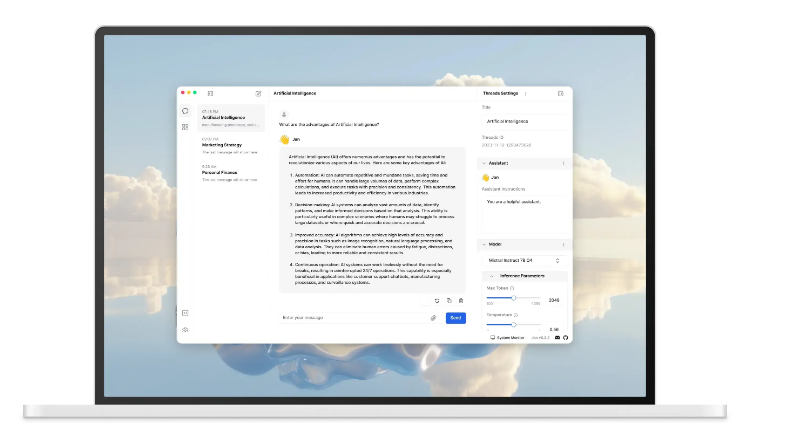Exploring Casibase: An Open-Source AI Tool for Case-Based Reasoning—Benefits for Healthcare and Legal Sectors
Table of Content
Casibase is an innovative open-source tool that supports case-based reasoning (CBR)—a sophisticated artificial intelligence method for solving new problems by drawing on past cases.
This powerful framework is tailored for developers, researchers, and practitioners eager to implement, experiment with, and apply CBR in their diverse projects.
At its core, Casibase AI provides a robust and flexible foundation for building and managing case-based systems. It offers a comprehensive set of tools and functionalities that significantly reduce development time while maintaining the flexibility demanded by modern AI projects.
This balance of efficiency and adaptability makes Casibase an invaluable asset in the rapidly evolving field of artificial intelligence.

One of Casibase's key strengths is its versatility. It can be applied across a wide range of domains—from healthcare and legal systems to customer service and product recommendations. This cross-domain applicability stems from Casibase's modular architecture, which allows for easy customization and extension to meet specific project needs.
Key Benefits of Casibase
- Efficient Knowledge Utilization: Casibase excels in storing, retrieving, and adapting past cases, enabling swift problem-solving by leveraging historical data for new challenges.
- Versatile Domain Application: From healthcare to legal systems, Casibase's flexibility allows seamless adaptation across various industries, making it a versatile tool for diverse problem-solving scenarios.
- Rapid Prototyping: With its well-structured framework, Casibase accelerates the development of case-based reasoning applications, eliminating the need to start from scratch and saving valuable time.
Primary Features of Casibase
- Extensible Architecture: Casibase's modular design allows developers to expand the framework with custom components, algorithms, or integrations, enhancing its adaptability to specific project needs.
- Flexible Domain Application: Not confined to a single domain, Casibase is versatile enough for various applications, from diagnostic tools to recommendation systems.
- Intelligent Case Adaptation: Casibase goes beyond simple retrieval by offering functionality to adapt past solutions to fit new problem contexts, enabling developers to refine and modify solutions effectively.
- Seamless Integration: Designed to work with existing systems and workflows, Casibase facilitates easy incorporation of CBR functionalities into larger projects.
- Advanced Case Management: Casibase offers robust mechanisms for storing and retrieving past cases based on their similarity to new problems, ensuring efficient utilization of previous solutions.
- Customizable Similarity Assessment: Recognizing that different problems require unique approaches to case similarity, Casibase allows developers to define and customize similarity metrics, enhancing its effectiveness across diverse problem types.
Supported Models
The Casibase project supports a variety of models that can be integrated into its framework.
As of now, the primary models supported include:
- OpenAI Models: These are standard models provided by OpenAI, which are widely used for various applications, including chat and content generation.
- Azure Models: Casibase also supports models hosted on Microsoft Azure, allowing users to utilize Azure's AI capabilities.
- Local Models: Users can configure custom local models, giving flexibility in deploying models on their own infrastructure.
Use Cases for Casibase
1- Healthcare:
Casibase aids medical diagnosis by offering recommendations based on similar past cases. It stores diverse patient data, providing tailored suggestions to assist doctors in making informed decisions, potentially improving diagnostic accuracy and treatment outcomes.
2- Customer Service and Support
Casibase streamlines customer service by quickly retrieving and adapting solutions from previous cases.
This automation enhances response times and customer satisfaction, allowing companies to efficiently resolve issues and maintain high-quality support.
3- Legal Reasoning:
In the legal field, Casibase helps practitioners build systems for case-based advice.
By efficiently finding relevant precedents and aiding in argument construction, it supports legal professionals in developing stronger, more informed strategies for their clients.
4- Product Recommendation Systems:
E-commerce platforms utilize Casibase to enhance product recommendations. By analyzing user purchasing histories and preferences, it suggests relevant items, potentially increasing sales and improving customer experience through personalized shopping suggestions.
5- Decision Support Systems:
Casibase aids decision-making in finance and supply chain management by analyzing historical data.
It provides recommendations based on similar past decisions, helping professionals make more informed choices and potentially improving operational efficiency.
License
Casibase is licensed under the MIT License, one of the most permissive open-source licenses available.
This license grants users the freedom to use, modify, distribute, and even commercialize the software, with the sole requirement of including the original copyright notice and license.
Such flexibility makes Casibase an ideal choice for developers aiming to create commercial or academic applications based on CBR methodologies, free from the constraints of restrictive licensing.
Final Note
Casibase stands out as a powerful tool for developers and researchers integrating case-based reasoning into their projects. Its flexibility, adaptability, and robust feature set make it an attractive choice across diverse industries and applications.
As an open-source platform available under the permissive MIT license, Casibase empowers users to efficiently leverage past experiences in solving new problems. Whether you're developing a decision support system or a healthcare diagnostic tool, Casibase provides the essential tools and infrastructure to jumpstart your project.











